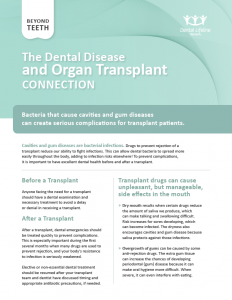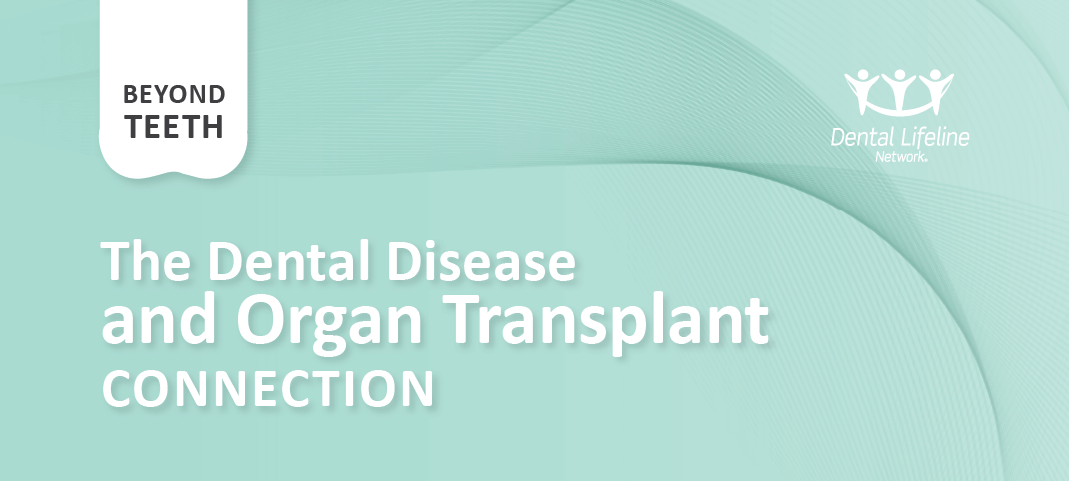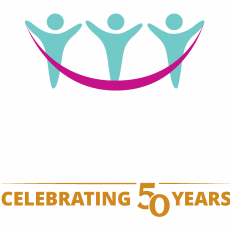Organ Transplant
Cavities and gum diseases are bacterial infections. Drugs to prevent rejection of a transplant reduce our ability to fight infections. This can allow dental bacteria to spread more easily throughout the body, adding to infection risks elsewhere! To prevent complications, it is important to have excellent dental health before and after a transplant.
Before a Transplant
Anyone facing the need for a transplant should have a dental examination and necessary treatment to avoid a delay or denial in receiving a transplant.
After a Transplant
After a transplant, dental emergencies should be treated quickly to prevent complications.This is especially important during the first several months when many drugs are used to prevent rejection, and your body’s resistance to infection is seriously weakened. Elective or non-essential dental treatment should be resumed after your transplant team and dentist have discussed timing and appropriate antibiotic precautions, if needed.
Transplant drugs can cause unpleasant, but manageable, side effects in the mouth
- Dry mouth results when certain drugs reduce the amount of saliva we produce, which can make talking and swallowing difficult. Risk increases for sores developing, which can become infected. The dryness also encourages cavities and gum disease because saliva protects against those infections.
- Overgrowth of gums can be caused by some anti-rejection drugs. The extra gum tissue can increase the chances of developing periodontal (gum) disease because it can make oral hygiene more difficult. When severe, it can even interfere with eating.
Resources

This information is a public service of the Dental Lifeline Network. The content is for educational purposes only. It should not be used as a substitute for the medical advice of one’s health care provider.
Your Input is Important
Please take a quick 2-3 minute survey to help us improve our communications about this important topic.
"*" indicates required fields


